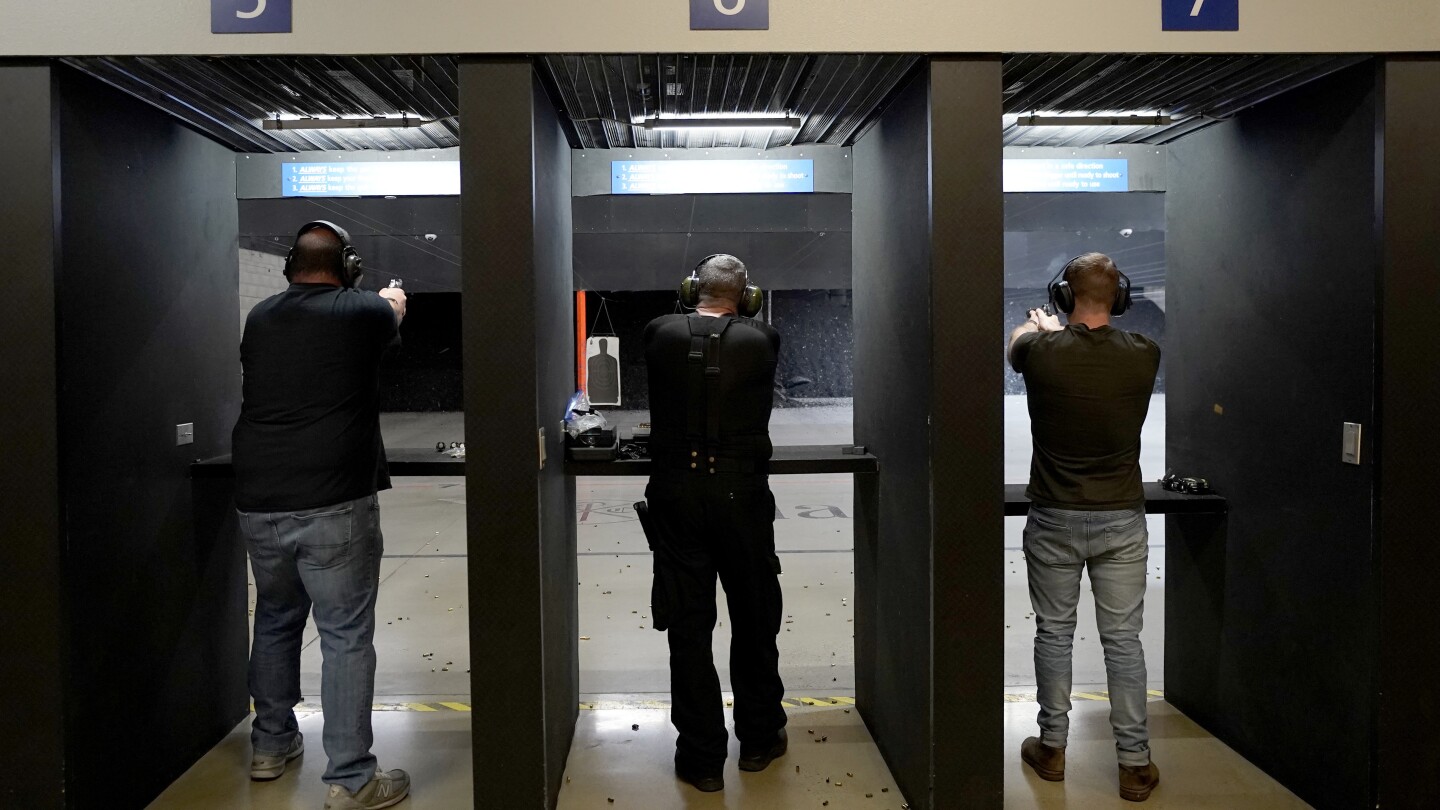LOS ANGELES (AP) — A new California law that bans people from carrying firearms in most public places was once again blocked from taking effect Saturday as a court case challenging it continues.
A 9th Circuit Court of Appeals panel dissolved a temporary hold on a lower court injunction blocking the law. The hold was issued by a different 9th Circuit panel and had allowed the law to go into effect Jan. 1.
Saturday’s decision keeps in place a Dec. 20 ruling by U.S. District Judge Cormac Carney blocking the law. Carney said that it violates the Second Amendment and that gun rights groups would likely prevail in proving it unconstitutional.
The law, signed by Democratic Gov. Gavin Newsom, prohibits people from carrying concealed guns in 26 types of places including public parks and playgrounds, churches, banks and zoos. The ban applies regardless of whether a person has a concealed carry permit.



Probably because carrying and owning firearms is a right, turns out it’s pretty hard to restrict people’s rights.
The same law would get blocked if it banned free speech in public
That’s ridiculous and you know it. The second amendment wasn’t meant for cosplaying in the first place. You can tell if you actually read it.
Good thing rights are literally just and social construct and aren’t limited to what’s specifically in the Constitution. Anyway the Supreme Court basically rewrote history in 2008 and 2010 and decided the second amendment was totally intended to protect the individual right to a firearm. I think they’re wrong, but I also think that humans have a right to personal weapons, so we’ll just pretend they’re right. Anyway, you can come up with come creative reinterpretations of the Constitution after the post-civil war amendments decided that the bill of rights applied to state laws. But really, you depend on that reinterpretation to protect you from cops and other forms of state-level tyranny so picking and choosing gets a little iffy.
deleted by creator
I mean, it isn’t. You name the right, I’ll name how it’s restricted.
To go with your example, these are examples of illegal speech, i.e. restrictions on free speech in public:
All of those things are things that cause real, direct harms, with speech as the weapon. (Also, defamation is a tort, not a crime.) On the other hand, lying, for instance, is absolutely legally protected speech, except in fairly limited circumstances. I can quite legally lie on my resume to get a job that I wouldn’t otherwise get, and about the worst that can happen is that I can be fired. I can lie about being a Navy Seal and having gotten a Medal of Honor in Afghanistan, and there’s pretty much fuck-all anyone can do about it (“stolen valor” laws were deemed unconstitutional by SCOTUS).
Mere ownership of a firearm, or even carrying, does not cause a direct harm. Brandishing a firearm–which is usually defined something like ‘threatening someone with a firearm’–is the rough equivalent of the things that you list.
Neither Federal nor State legislators - nor judges - care whether or not a crime is victimless. See e.g. the War on Drugs.
That makes defamatory speech easier to restrict by reducing the plaintiff’s burden of proof.
Defamation is also a 3-pronged test, assuming that you aren’t talking about a public figure. It needs to be false (truth is an absolute defense against defamation), you need to have either known that it was false, or have had reckless indifference to the truth, and you need to have caused some kind of measurable harm (and hurting your feelings isn’t a measurable harm). All of that is played out against a field of lawyers in a civil suit that charge by the hour. Defamation is actually quite challenging to win in the US, unless the person that is alleging defamation has a lot of money to spend on attorneys to buy the defendant.